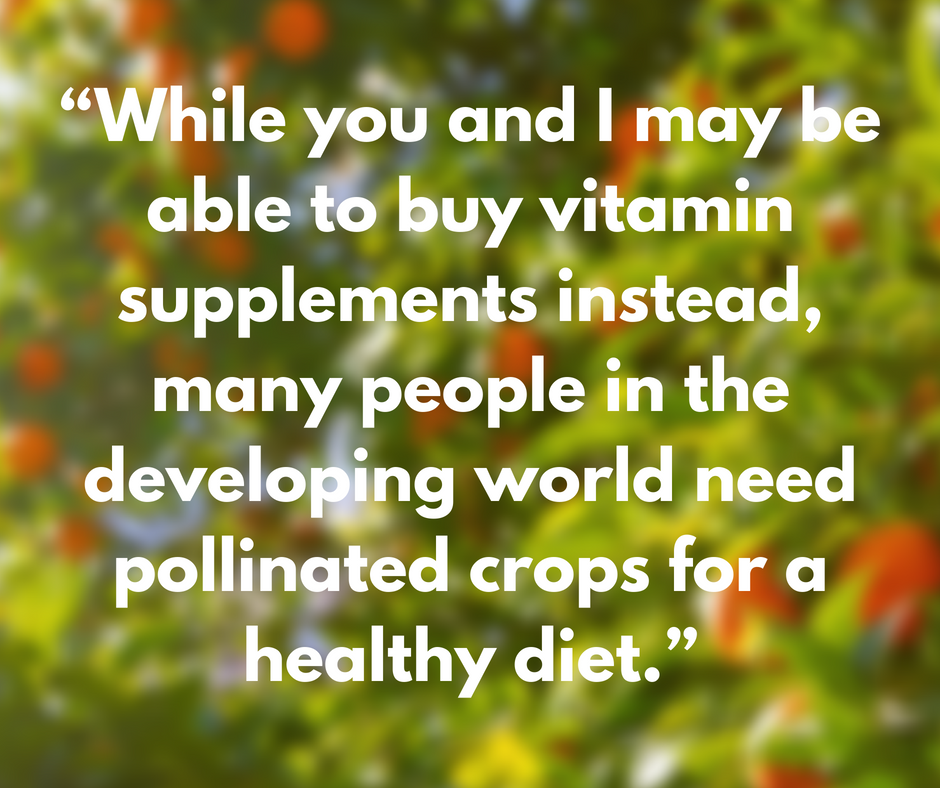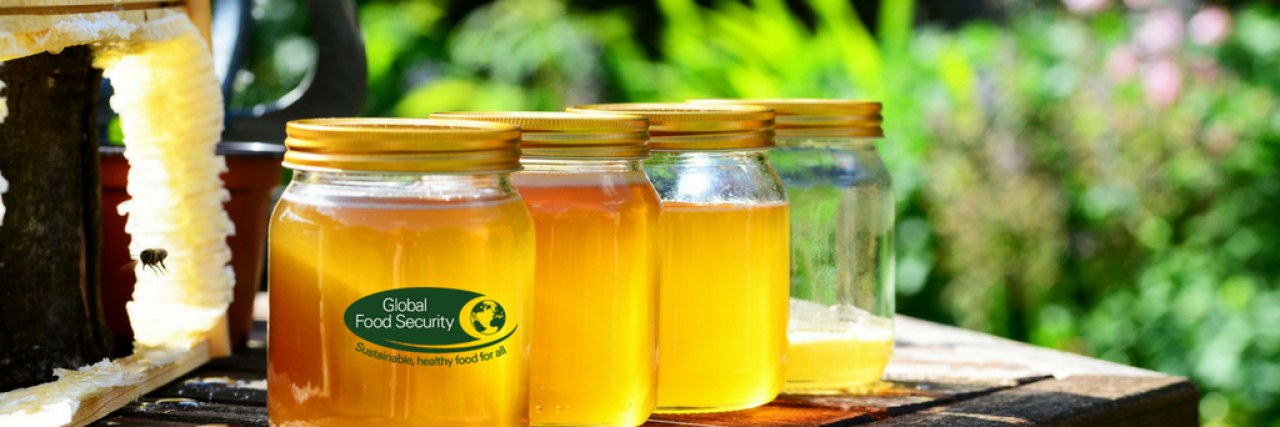For National Insect Week, Dr Tom Breeze from the Modelling Landscapes for Resilient Pollination Services in the UK project, part of our Food Systems Resilience Programme, shares how bees are vital to global food security.
The next time you’re ordering your morning flat white, take time to pause and thank the humble bee for the caffeine buzz that’s kickstarting your day. What’s the connection? Well, bees play a key role in the pollination of coffee crops. While coffee trees are primarily self-pollinating, studies show that bees give the process an added boost, increasing yields and insuring we have a plentiful supply for the 95 million cups we consume daily in the UK.
It was Chaucer who first coined the phrase ‘as busy as bees’ in the 14th century in The Canterbury Tales and the bee is now synonymous with exhausting bursts of activity. Even so, most of us aren’t aware how the hard work of pollinators is crucial in ensuring we tuck into loaded plates of tasty food and stay healthy. According to Dr Tom Breeze, Research Fellow at the University of Reading, around one third of global crop production comes from insect-pollinated crop, a not-insignificant number given that the UK imports 40% of its food. “The majority of staple crops in our diet are wind-pollinated, such as rice, barley, oats and potatoes,” he says. “But without pollinators we wouldn’t have so much of the fruit and vegetables we enjoy.”

Bees are not just responsible for ensuring the quantity of our food; the perfect shape of those showpiece fruits and vegetables stacked up in our supermarkets can be down to pollination too, as Tom explains. “If you’ve ever seen a strawberry that’s a bit malformed, that’s because every stigma in a flower has to receive pollen in order for it to set a proper seed and for the fruit to grow into the shape we like. When you see one of those small, warped strawberries, that’s down to improper pollination. It’s such a stark image of what happens without pollinating insects.”
Misshapen strawberries aside, insect-pollinated fruit and vegetables are a major source of micronutrients such as Vitamin A and folic acid. Take pollinating insects out of the system and according to Tom there would be around 1.4 million deaths globally per year from preventable illnesses. “On top of that, a lot more people would suffer from malnutrition,” says Tom. “The countries worst affected by this loss are often the ones which already suffer from rampant vitamin deficiency. While you and I may be able to buy vitamin supplements instead, many people in the developing world need pollinated crops for a healthy diet.”
Changes in climate and land use can cause populations of wild insects to decline or displace species from their natural range. With this comes a decline in the essential pollination services these insects provide. In the UK we’re better off than some countries at providing safe havens for wild insects, as Tom points out: “Thanks to measures such The Hedgerow Regulations, which protect hedgerows from destruction, we’re not as badly off as in some other countries.”
Tom is part of a team participating in the Modelling Landscapes for Resilient Pollination Services in the UK project to research how the way we manage our landscapes affects the types and numbers of pollinators and the pollination services they provide. Although the project is UK based, the impacts are potentially global. “When we’re drinking our coffee we’re not thinking about how we have our pollinators to thank for this,” says Tom. “While we should be concerned about pollinator losses at home, we should be just as worried about losses in places such as Africa and Southeast Asia. We tend focus on British bees, but actually pollinators play a role across the whole food web.”
The Modelling Landscapes for Resilient Pollination Services in the UK project is one of ten projects funded through the Global Food Security’s ‘Resilience of the UK Food System Programme’ with support from BBSRC, ESRC, NERC and Scottish Government. For more about researchers who are working to meet the challenge of providing the world’s growing population with access to safe, affordable and nutritious food, see: About the programme.




Whilst I fully support any campaign that keeps insect pollinators (including bees) well and active I would question the claims that they are as vital as some maintain. Many plants like fruits and vegetables rely to a considerable extent on entomophilous pollination the ‘big three’ Rice, Wheat and Maize are all wind pollinated as are all the other major cereals like Sorghum, Rye and Oats. Between them they contribute some 70% of the food calories consumed by humans. Also there are many species of pollinators, bees (of which there are many species) being one. Please can we keep bees in perspective as an important part of agriculture but not perhaps as vital as some would suggest.